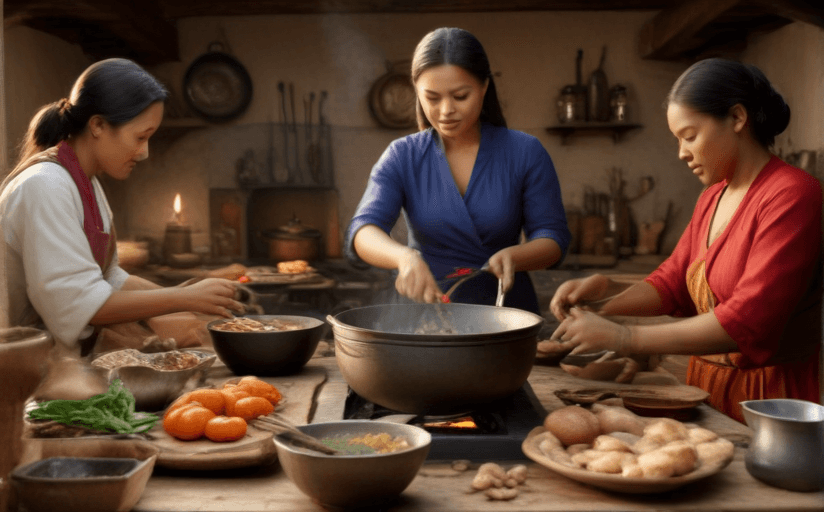How Culture Influences Traditional Cooking Methods: A Comprehensive Exploration
Cooking is not just a mechanical process of heating and serving. It involves distinctive passion, creativity and an amalgamation of traditions passed down generations. A fascinating aspect of cooking is how heavily it is influenced by culture, and in turn, how it narrates a unique story of each culture's history, geography, socio-economics and traditions.
The Culinary Practices from East to West
Asian Cooking Techniques: Chinese Stir Frying and Japanese Sushi Making
Influence of culture is especially prominent in Asian cooking techniques. China, with its vast landscape and myriad cultures, has a rich culinary history. Stir-frying, a Chinese cooking technique, was tailored to suit the fuel scarcity, making it an economic and resourceful choice. Similarly, the geography of Japan, an island country, has greatly influenced sushi making with the bounty of fresh seafood.
European Cuisine: Spanish Paella and French Sous Vide
Spanish Paella, a representative of Spanish cuisine, is heavily influenced by its geographical location and socio-economic factors. As a rice-growing region with plenty of seafood abounds, this dish from Valencia has been shaped accordingly. France's revolutionary sous vide technique, on the other hand, was born out of their endeavor to achieve culinary perfection and finesse.
African Cooking: Ethiopian Injera and Moroccan Tagine
Africa, a continent of diverse cultures and traditions, has a wealth of culinary practices. The Ethiopian Injera, a sourdough flatbread, is preparation passed down generations and reflects the culture of communal eating. Moroccan tagine, named after the earthenware it's cooked in, delineates the economical usage of fuel and resources in traditional cooking practices.
The Importance of Preserving Traditional Cooking Methods
While the modern world is constantly evolving and adapting to new technologies and techniques, it becomes essential to preserve and cherish traditional cooking methods. This move not only respects and retains cultural identity but also enriches the global food scene with its diverse and unique offering.
Conclusion
Cooking is inextricably linked with culture, portraying the geography, history, and identity of a place. Recognizing this intricate relationship and preserving these traditional cooking methods can deepen our understanding of our diverse and vibrant global cultural heritage.
References
These observations and information are based on various expert sources, first-hand accounts, and academic research garnered from multiple journals, books, and culinary experiences. Further discussions and study in this field can lead to a deeper appreciation of our culinary traditions and their cultural origins.

















Comments
Leave a Comment